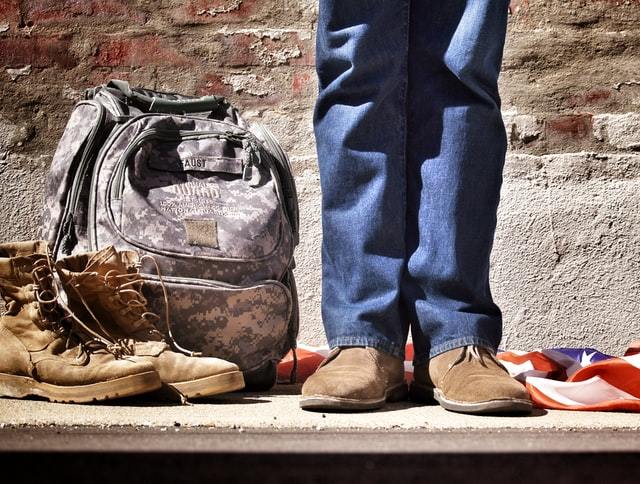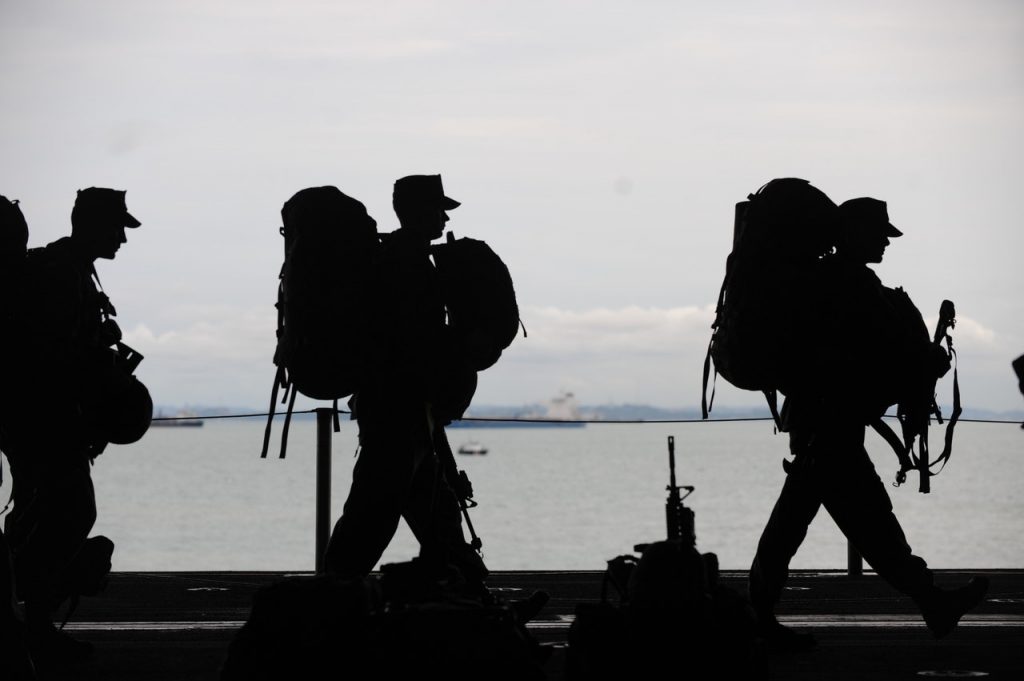
Members of all of the branches of the United States Armed Forces have a dangerous job, and often put into hazardous situations. As a result, you would think that the most frequent injuries incurred by service members would be physical injuries, or emotional damage such as post-traumatic stress disorder. However, it’s not; veterans and hearing loss is the most frequent and common!
Left untreated, hearing loss can lead to difficulty communicating with loved ones, feelings of isolation, depression, and an increased risk of dementia later in life. However, as a veteran with hearing loss you are not alone, and there are steps you can take to reduce and manage your hearing loss and live a more normal and productive life.
Veterans Suffer Hearing Loss More Frequently

Hearing loss and tinnitus are listed as the top two service-related injuries that veterans incur. More than 1.7 million receive disability compensation for tinnitus and over 1.1 million receive compensation for hearing loss.
Most of the hearing loss injuries in veterans are from noised-induced hearing loss (NIHL), which is no surprise considering the army is full of loud noises associated with gunfire, aircraft, tanks, and explosives.
Chronic noise exposure from being exposed to ship and tank engines, airplanes and helicopters can lead to serious hearing injury. Half of all blast injuries result in permanent hearing loss.
Because of these factors, veterans are 30% more likely to have hearing loss than non-veterans. In recent years, the armed forces have started to recognize hearing injuries as a problem and have begun to take steps to prevent noise-induced hearing loss such as controlling noise exposure by isolating service members from sources of noise, vibration dampening, and insulation.
The use of hearing protection devices such as foam ear plugs, molded insets and sound attenuating ear muffs have become much more widespread in the armed forces.
Hopefully these preventative steps will begin to reduce the prevalence of noise-induced hearing injuries, but there are still millions of veterans suffering from sometimes debilitating hearing loss.
Experiencing Hearing Loss? The First Steps to Take
If you’re not enrolled in the Veteran’s Administration (VA) benefits, then the first step would be to visit your primary care physician for an ear exam.
Your physician will most likely refer you to an otolaryngologist (ear, nose, and throat doctor) for a more thorough exam. The otolaryngologist will determine your severity of hearing loss and whether or not it is medically correctable (hearing aids are considered medical devices).
If your hearing loss is determined to be medically correctable, then you will be referred to a licensed audiologist who will test your hearing to help you get fitted with the right hearing aid, and help with the purchase of your hearing aid.
Hearing aids are expensive, ranging from $1,200 to $5,000 per ear, and the amount of that cost that private insurance, Medicare, or Medicaid covers is extremely limited. Most insurance policies cover hearing exams, but cover only a small portion or none of the cost of the hearing aids themselves.
Luckily, as a veteran you have access to a much better option to help offset hearing aid costs: the VA.
Consider the VA for Support
All veterans enrolled in VA benefits are eligible to receive diagnostic audiology services, and many veterans are also eligible to receive hearing aids, repairs, and hearing aid batteries from the VA at no charge.
Veterans that are eligible to receive hearing aids meet the one or more of the following criteria:
- Veterans that experience hearing loss that is connected to their military service
- Former Prisoners of War (POWs)
- Veterans that have been awarded a Purple Heart
- Veterans receiving benefits under Title 38 United States Code 1151
- Veterans that are permanently housebound and require aid
- Veterans experiencing hearing loss due to medical conditions treated at a VA hospital
- Veterans experiencing hearing loss that is so severe that it affects daily life.
- Veterans experiencing hearing loss that is so severe that it inhibits their ability to participate in their own medical treatment
- Veterans with a combination of severe hearing and vision loss
Veterans do not need a referral from their primary care physician to see a VA audiologist; just contact the closest VA clinic to make an appointment. If the closest clinic is further than 40 miles from your home or you have to wait more than 30 days for an appointment, then you may be eligible to visit a private audiologist via the VA’s Choice Program.
You must be enrolled in VA benefits and have your eligibility for benefits confirmed before you make an appointment, so if you are a veteran and have not signed up for Veteran’s Benefits, you can do so here. You can find your nearest VA hospital here.
Once you have been evaluated by a VA audiologist, they will determine your need for a hearing aid and schedule you to be fit for hearing aids.
The services for hearing health don’t just stop with hearing aids, however. In the initial period after being fitted with new hearing aids, adjustments are often needed, which used to require multiple visits to the clinic. Now, many hearing aids can be adjusted remotely through a VA Video Connect (VVC) visit; so further physical visits to the clinic are unnecessary.
Veterans that receive hearing aids are eligible to receive replacement batteries for their aids; they can choose to order these via regular mail by filing blue VA Form 2346 (Request for Batteries and Accessories), by calling the Denver Acquisition & Logistics Center (DALC) at 303-273-6200, or online through eBenefits.
Additionally, the audiologists at the VA clinic provide other hearing health care services to veterans, including disability audiology exams, examinations and management of hearing loss, tinnitus, and balance disorders, and rehabilitation services to help maintain a patient’s remaining hearing.
They also offer other devices for veterans with hearing loss such as TV and telephone amplifiers.

The information in this guide has been written using the following reliable sources:
https://www.ncbi.nlm.nih.gov, https://www.research.va.gov, https://mobile.va.gov, https://www.myhealth.va.gov, https://hearinghealthfoundation.org, https://www.aarp.org, https://www.prosthetics.va.gov, https://www.hearingloss.org, https://www.ebenefits.va.gov,








